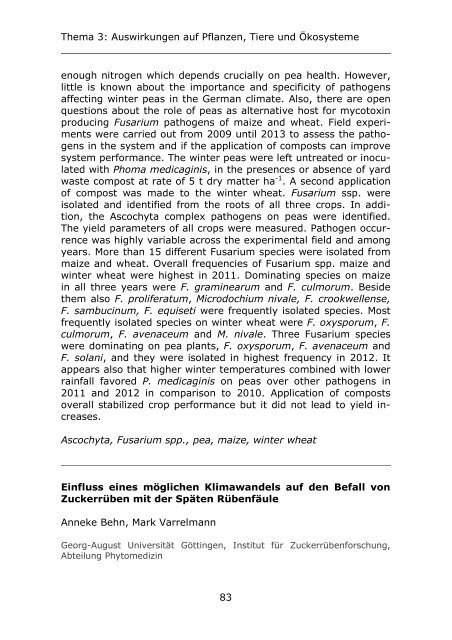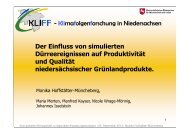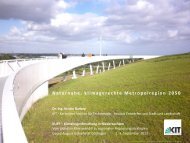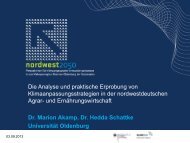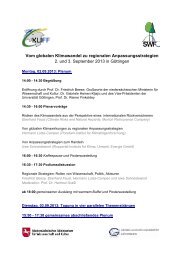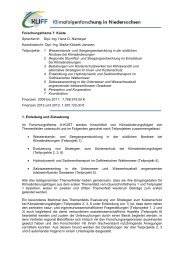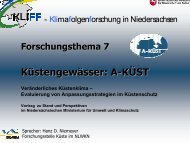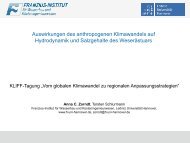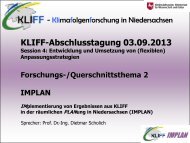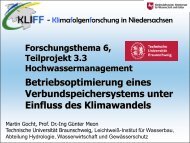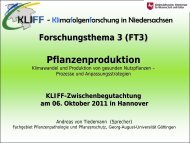Abstract-Band KLIFF-Tagung 2.und 3.9.13
Abstract-Band KLIFF-Tagung 2.und 3.9.13
Abstract-Band KLIFF-Tagung 2.und 3.9.13
Sie wollen auch ein ePaper? Erhöhen Sie die Reichweite Ihrer Titel.
YUMPU macht aus Druck-PDFs automatisch weboptimierte ePaper, die Google liebt.
Thema 3: Auswirkungen auf Pflanzen, Tiere und Ökosystemeenough nitrogen which depends crucially on pea health. However,little is known about the importance and specificity of pathogensaffecting winter peas in the German climate. Also, there are openquestions about the role of peas as alternative host for mycotoxinproducing Fusarium pathogens of maize and wheat. Field experimentswere carried out from 2009 until 2013 to assess the pathogensin the system and if the application of composts can improvesystem performance. The winter peas were left untreated or inoculatedwith Phoma medicaginis, in the presences or absence of yardwaste compost at rate of 5 t dry matter ha -1 . A second applicationof compost was made to the winter wheat. Fusarium ssp. wereisolated and identified from the roots of all three crops. In addition,the Ascochyta complex pathogens on peas were identified.The yield parameters of all crops were measured. Pathogen occurrencewas highly variable across the experimental field and amongyears. More than 15 different Fusarium species were isolated frommaize and wheat. Overall frequencies of Fusarium spp. maize andwinter wheat were highest in 2011. Dominating species on maizein all three years were F. graminearum and F. culmorum. Besidethem also F. proliferatum, Microdochium nivale, F. crookwellense,F. sambucinum, F. equiseti were frequently isolated species. Mostfrequently isolated species on winter wheat were F. oxysporum, F.culmorum, F. avenaceum and M. nivale. Three Fusarium specieswere dominating on pea plants, F. oxysporum, F. avenaceum andF. solani, and they were isolated in highest frequency in 2012. Itappears also that higher winter temperatures combined with lowerrainfall favored P. medicaginis on peas over other pathogens in2011 and 2012 in comparison to 2010. Application of compostsoverall stabilized crop performance but it did not lead to yield increases.Ascochyta, Fusarium spp., pea, maize, winter wheatEinfluss eines möglichen Klimawandels auf den Befall vonZuckerrüben mit der Späten RübenfäuleAnneke Behn, Mark VarrelmannGeorg-August Universität Göttingen, Institut für Zuckerrübenforschung,Abteilung Phytomedizin83


